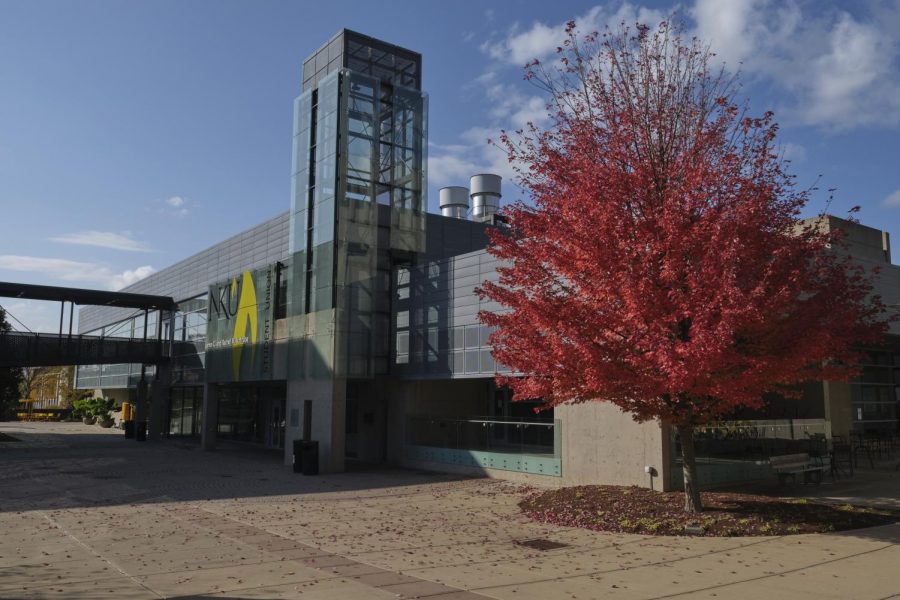What you missed at SGA: Oct. 11
October 12, 2021
Provost and Executive Vice President for Academic Affairs Matt Cecil presented for a majority of SGA’s Monday meeting.
Cecil started his presentation by first discussing the recent decrease in COVID cases around the area.
The rate of transmission (the number of people infected in one close contact with the virus) of COVID for our area has decreased over the last two weeks. The current rate of transmission in Kentucky is 0.77.
“We are seeing an exponential decrease in the number of cases across the area which is really encouraging,” Cecil said.
However, the number of positive cases decreasing does not mean the coast is clear for COVID protocols throughout campus.
“That’s good news [the decrease of transmission rate] but it doesn’t change what we need to do,” Cecil said. “One of the things I always encourage people to do is avoid those situations where others aren’t being careful.”
NKU’s COVID Indicators consider the university in the yellow stage, meaning that transmission levels are manageable. Just two weeks ago, the indicator stage was in red for the university, meaning that transmission levels were depleting institutional resources.
Cecil said he does not see NKU’s indoor mask requirement going away for quite some time, which was first mandated in the beginning of August.
“I think we’re going to be in a very similar mode to this as we kind of wait to see where the cases settle, and it’s likely we’re going to hit sort of a plateau and just sort of stay there throughout the winter, we just don’t know where that’s going to be,” Cecil said.
Cecil then discussed “alarming data points” involving student enrollment, where on-campus enrollment has dropped by 2,300 students over the last six years.
“We have to stop that trend [of enrollment rates decreasing] and student success is the answer, working so that all of our students have the best chance to achieve their goals,” Cecil said.
Retention rates have also declined by nearly five percent throughout the entirety of the pandemic, as well as opportunity gaps becoming more prevalent on campus. Retention rates have been even lower for students of color, low-income students and many other groups of students according to Cecil.
“This is something we have to focus on. We could fix the overall retention rate and make those opportunity gaps worse if we’re not careful about the way we do our work,” Cecil said.
Cecil concluded his presentation with the mentioning of a new First-Year Advising Center that will be implemented starting next semester.
10 more first-year professional advisors will be added to the first-year and professional advising staff.
“Each professional advisor in that First-Year Advising Center will have about 125 students assigned which is, we’re told, ideal for the industry. What that means is that every new student coming to our campus will have a person who’s there, a person in that office that they can go to,” Cecil said.
Along with the new advising center will be a peer mentorship program where each new first-year student can also have a more experienced student to count on, as well as a faculty mentor for first-year students to turn to.
“So already, the minute you arrive on campus, there are going to be three people who are on your team to provide that coordinated care that we know makes a huge difference in student success,” Cecil said.
Throughout the new advising center will also be a student engagement coordinator to help with the interests of first-year students as well as an eventual mental health counselor.
The meeting then ended in normal business.
To apply to become an SGA senator, click here.

